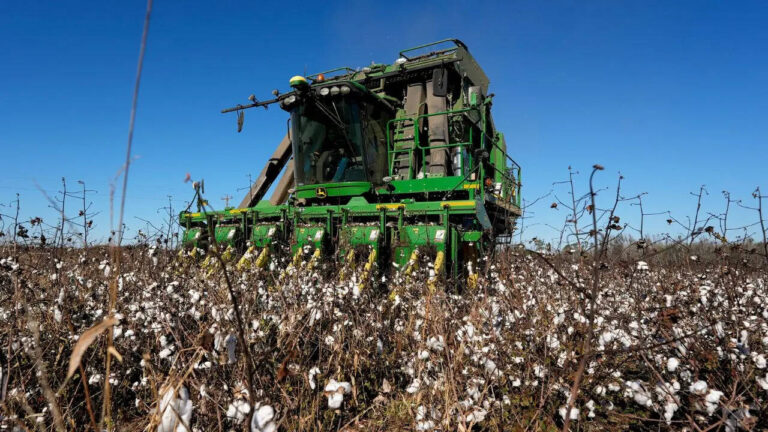Farmers were among those hardest hit during Trump’s first trade war with China, when soybean imports collapsed and the government paid roughly 23 billion in compensation. (Source: AP)
Photo : AP

US President Donald Trump is considering a fresh aid package worth at least $10 billion for American farmers as the agricultural sector warns of growing economic strain from his extensive tariff measures, The Wall Street Journal reported.
According to the report, people familiar with the discussions said the administration is exploring the use of tariff revenue to fund the programme, with distribution potentially beginning in the coming months. One senior official said the deliberations have focused on a range between $10 billion and $14 billion in aid, much of it likely directed at soybean producers and other key parts of the farm economy.
“The discussions are ongoing and nothing has been definitively settled,” the official said.
White House spokeswoman Anna Kelly said President Trump and Agriculture Secretary Brooke Rollins were in regular contact “about the needs of our farmers, who played a crucial role in the President’s November victory.”
“He has made clear his intention to use tariff revenue to help our agricultural sector, but no final decisions on the contours of this plan have been made,” Kelly added.
Treasury Secretary Scott Bessent told CNBC that new support measures could be announced as early as Tuesday.
American farmers are currently grappling with falling crop prices and rising production costs despite one of the largest harvests in history. Federal data suggest that soybean farmers could lose about $100 per acre this year.
“I think that money would be out of our hands pretty quickly,” Chris Swanson, a soybean farmer in Iowa, referring to the potential bailout, told The Wall Street Journal.
From January through August, US soybean exports to China dropped sharply to about 200 million bushels, down from nearly one billion during the same period in 2024, according to the American Farm Bureau Federation. Meanwhile, Brazil has filled much of the gap, shipping more than two billion bushels to China.
Representative Derrick Van Orden, a Republican from Wisconsin, said: “Right now things are very difficult, especially for our bean farmers. This is going to be solved by trade and finding markets in countries that aren’t actively plotting to destroy the United States.”
Farmers were among those hardest hit during Trump’s first trade war with China, when soybean imports collapsed and the government paid roughly $23 billion in compensation.
With earlier funding sources now restricted by new tax legislation, the White House is seeking alternative means to support farmers while urging the agriculture sector to expand domestic markets and develop new export routes.
The Treasury Department said the US collected $149.2 billion in customs duties during the first eight months of this year — a record amount, largely driven by Trump’s tariffs.


